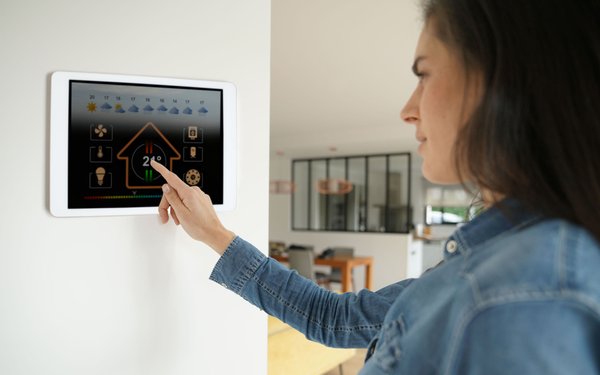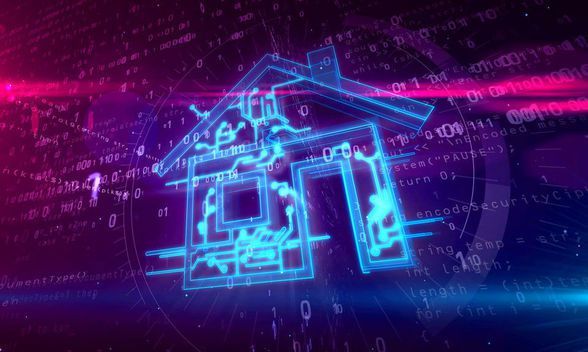In recent years, the smart home has evolved from an abstract concept to a tangible offering of products and solutions. In the first half of 2018, more than 16 million smart home devices were sold in Germany, Great Britain and France.
In recent years, the smart home has evolved from an abstract concept to a tangible offering of products and solutions. In the first half of 2018, more than 16 million smart home devices were sold in Germany, Great Britain and France.
In these three markets, sales amounted to 5.4 billion euros, an increase of 11% compared to the same period in 2017. In Italy, sales of smart devices increased by 9% in value. According to GfK, the spread of voice assistants will enable the smart home sector to develop further. These are the main trends that GfK will present at IFA 2018 in Berlin.
In the past, "intelligent" features were presented to consumers as the solution to make their homes smart. Over the years, it has become clear that to ensure you need to offer functional solutions that are designed taking into account the new needs of consumers, such as the desire to play, the need for security inside and outside the home, attention to the environment and energy savings.
GfK data show significant growth in sales of intelligent devices, such as LED lamps, smart cameras, smart appliances, vacuum cleaners and other devices. For example, the home automation and security devices segment grew by 39% per unit and 17% in value in the first half of 2018 in Western European countries.

The smart home: a booming segment, also in Italy
In order to better monitor the performance of the sector, GfK Italy launched the new GfK SmartHom²e (SmartHome squared) solution, which integrates the results of consumer attitude research with data on sales of smart devices, tracked at more than 43 thousand points of sale in Italy using the GfK POS tracking method. Between January and June 2018, sales of smart home devices in our country increased by 5% per unit and 9% in value. The trend is even more positive (+25% in value) in Smart TVs, which are the best-selling smart home product.
Looking at the individual sectors, the performance of the connected Greater Appliance (+39% in value) and devices for smart home and security (+27%) is particularly positive. Sales of smart home devices in the Small Appliance (+ 8%) and Home Entertainment (+ 5%) segments also rose. Among the intelligent products that were more successful in the first few months of 2018 were washing machines, Home Audio Systems (which also include local assistants), LED lighting and air-conditioning systems (thermostats and air-conditioning).
The smart home for Italians: propensity and resistance
Sales figures show a growing interest in smart devices among Italians, but the market is still in its infancy. To better understand what they think about Italian smart home, GfK surveyed current and potential users to examine levels of knowledge and awareness, people's expectations, market potential and opportunities.
When asked "What will be the technology that will really change our lives", Smart home is mentioned by only 28% of Italians, behind technologies known as Mobile Payment, 3D Printers and Wearables.
The gap is cultural: Italians say they know little about technology related to smart devices. GfK data shows that only 5% of Italians think they know "well" about smart home technology, compared to 25% of China or 22% of the US. In this sense, manufacturers should invest so that Italians understand the real benefits of the Smart Home, in terms of saving time and money and simplifying daily life.
However, the pool of potential is very large: about 35% of Italians say they want to buy at least one smart device in the next two years. And what are the conditions for encouraging the development of smart home in our country? Research has highlighted some obstacles to be overcome: the perception of high cost, lack of product knowledge, problems related to the stability of the Internet connection and compatibility between devices of different brands.
Voice assistants: a solution for integrating smart devices
It is only recently that voice assistants have entered consumers' homes, supporting the smart devices that are already present. Thanks to their interface based on big data and artificial intelligence (AI), voice assistants can learn and store user preferences in different contexts or activities.





